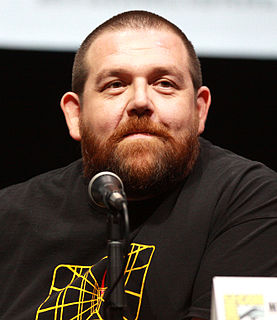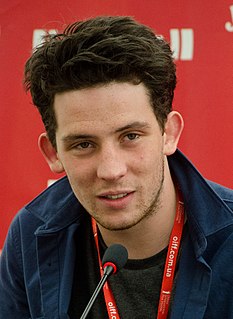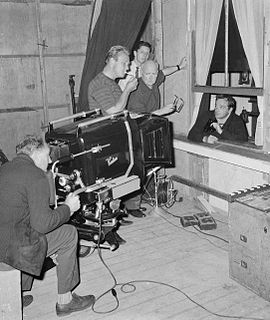A Quote by Wong Kar-wai
I'm not coming from film school. I learned cinema in the cinema watching films, so you always have a curiosity. I say, 'Well, what if I make a film in this genre? What if I make this film like this?'
Related Quotes
For people to understand, you can't speak 'cinema.' Cinema doesn't have alphabets, so you have to go to the local language. Even in England, if they make a movie in London they have to make it in the Cockney accent, they can't make a film with the English spoken in the BBC. So cinema has to be realistic to the area that it is set in.
For me, as a film goer, I like nothing more than to sit in the cinema, have the lights go down and not know what I'm about to see or unfold on-screen. Every time we go to make a film, we do everything we can to try to systematise things so we're able to make the film in private, so that when it's finished it's up to the audience to make of it what they will.
More than my other films, Uncle Boonmee is very much about cinema, that's also why it's personal. If you care to look, each reel of the film has a different style - acting style, lighting style, or cinematic references - but most of them reflect movies. I think that when you make a film about recollection and death, you have to consider that cinema is also dying - at least this kind of old cinema that nobody makes anymore.
When I make a film, I am hoping to reinvent the genre a little bit. I just do it my way. I make my own little Quentin versions of them... I consider myself a student of cinema. It's almost like I am going for my professorship in cinema, and the day I die is the day I graduate. It is a lifelong study.
A film in which the speech and sound effects are perfectly synchronized and coincide with their visual image on the screen is absolutely contrary to the aims of cinema. It is a degenerate and misguided attempt to destroy the real use of the film and cannot be accepted as coming within the true boundaries of the cinema.
I just finished a film a few days ago, and I came home and said I learned so much today. So if I can come home from working on a little film after doing it for 45 years and say, "I learned so much today," that shows something about the cinema. Because the cinema is very young. It's only 100 years old.



































